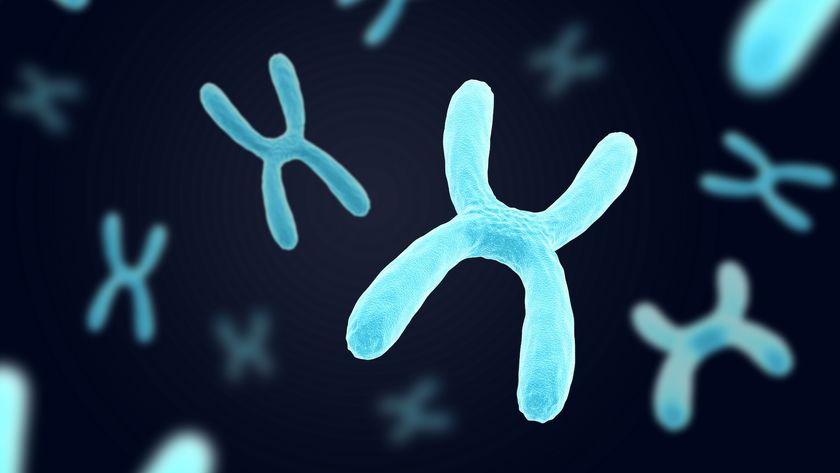Pay Attention! 5 Tips for Staying Focused

How long can you maintain your focus?
If you're the typical citizen of the 21st-century , your attention will be diverted every three minutes or so by your inbox or your cell phone, according to informatics professor Gloria Mark, of the University of California at Irvine.
While some argue that such hyper-connectivity is "nibbling away at our attention spans," as Bill Keller, executive editor of the New York Times, wrote in a recent essay, others say the brain is remarkably flexible and can adapt to the constant influx of information.
"We have evolved as a species under a very different set of attentional demands than we currently live under," said neuroscientist Joe Hardy. "The good news is that the brain is remarkably able to reshape itself to meet the demands presented."
Still here?
Here are five ways you might improve your focus:
Mind your brain
Sign up for the Live Science daily newsletter now
Get the world’s most fascinating discoveries delivered straight to your inbox.
As a vice president at Lumosity, a San Francisco-based Internet company that offers "cognitive training" games, Hardy said computer exercises are one way to teach the brain to filter out modern distractions.
A typical game on the site is Playing Koi; the object is to feed fish without feeding the same one more than once.
There is little evidence that such games accomplish what they claim. Still, some studies demonstrate brain training's promise. In the May edition of the journal Proceedings of the National Academy of Sciences, Duke University researchers reported that elementary and middle school children exposed to brain training games showed improved working memory, which affects attention and focus.
The researchers concluded that brain training in general appears to be effective for some people. Among the unanswered questions, however, are under what conditions cognitive training might be effective, and what underlying neural and cognitive mechanisms would be responsible for improvements.
Just breathe
Meditation may provide a non-digital solution for solving the attention problem.
In May, a report in the journal Brain Research Bulletin illustrated that mindfulness training, or meditation, can improve attention . In the study, led by Christopher Moore at the Massachusetts Institute of Technology, participants underwent two months of training to increase their perception of common sensations such as breathing.
When Moore and his team measured each participant's brain activity with magnetoencephalography scans, they observed increases in regions associated with selective attention. Drink a latte
Caffeine and its effects on the body including its ability to increase alertness have been extensively studied. It turns out your average latte may improve attention as well, albeit indirectly.
For a recent analysis in the Journal of Alzheimer's Disease, French physiologist Astrid Nehlig examined studies investigating the relationship between caffeine and cognition. Nehlig found evidence of a plausible connection: Most of the studies she reviewed showed an increase in subjects' reaction times when they consumed caffeine.
This may be because caffeine increases physiological arousal, which could also make a person less easily distracted and better able to sustain attention in demanding tasks, Nehlig wrote.
Enjoy a diversion
Perhaps the simplest way to improve attention span is simply not to pay attention for a little while. Evidence shows that taking a break improves your ability to focus once you return to the task at hand.
Even the briefest intermission can be beneficial, according to research from the University of Illinois, as reported in the journal Cognition in February. In the study, led by psychologist Alejandro Lleras, 84 participants were given a 50-minute-long computer task. The participants who were allowed two short breaks during the task performed it better.
Lleras said that just as the body becomes habituated to a stimulus over time (for example, you're not constantly aware of the feel of your socks), your mind can become habituated to the subject of its concentration.
"Prolonged attention to a single task actually hinders performance," Lleras said.
In other words, taking a short break in the middle of a long task acts like a "refresh" button for the brain.
Know your limits
In the end, increasing your ability to focus may require you to figure out what distracts you most.
In one study, people whose work was interrupted by emails from a hypothetical supervisor reported higher levels of stress after just 20 minutes.
Surprisingly, the participants were working faster, but at a higher cost: They reported feeling their workload was greater and required more mental effort to complete, according to Gloria Mark, who presented the findings at a 2008 meeting of the Association of Computer Machinery.
Mark said everyone may have a level of interruption that is tolerable, and a threshold for distraction. Exceed the threshold and the quality of work (not to mention the quality of a person's life) declines.
If you're feeling overworked and unable to concentrate, the solution may be as easy as signing out of your email account for a few hours.
- 6 Foods That Are Good For Your Brain
- 11 Interesting Effects of Oxytocin
- Hypersex to Hoarding: 7 New Psychological Disorders
Follow MyHealthNewsDaily on Twitter @MyHealth_MHND.












